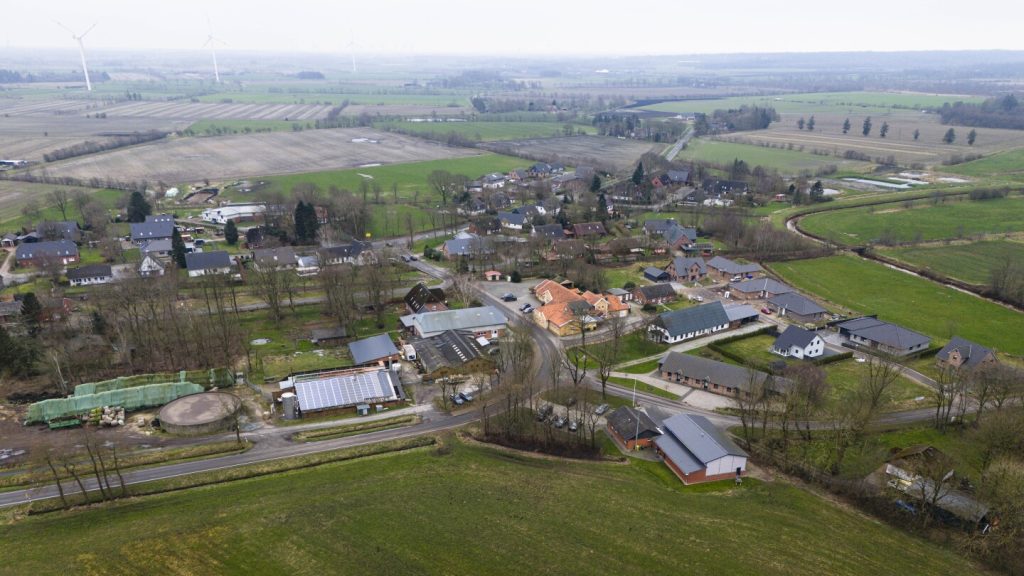Sprakebuell, a small village in north German farm country, has seen prosperity and new life thanks to renewable energy. The village generates electricity from wind turbines, with a portion of the profits going back to the residents. This model of citizen-owned wind parks provides a steady income for farmers like Astrid Nissen, who manages a dairy farm in the village. The income from the wind turbines has allowed the village to invest in community projects such as a new playground, bike path, and free piano lessons for children.
However, the growth of renewable energy projects worldwide is facing challenges due to high interest rates, inflation, and supply chain disruptions. The cost of borrowing for renewable projects has increased significantly, making it more difficult to fund these initiatives. In Sprakebuell, the residents overcame these challenges by putting in a 20% down payment for building a wind park, with local banks providing the remaining 80%. This model has enabled the village to thrive and improve its infrastructure, benefiting both residents and the local economy.
Renewable energy developer Christian Andresen emphasizes the importance of local ownership in renewable projects, as it helps communities to identify with and support these initiatives. The German government’s guaranteed price for electricity over 20 years and low-interest rate loans from the government development bank have been crucial in moving renewables forward. However, rising interest rates and inflation continue to pose challenges for the renewable energy sector, impacting the profitability of projects and causing delays in implementation.
The impact of these challenges is not limited to Germany but is also felt globally, particularly in lower-income countries like sub-Saharan Africa. Renewable projects in Africa face obstacles such as higher borrowing costs, political upheavals, and uncertain government subsidies. Despite the abundance of sunshine, solar power projects in these regions struggle to secure financing and move forward. Solutions such as raising electricity prices, subsidized interest rates, and credit guarantees from developed countries are needed to support renewable energy initiatives in these areas.
In the face of these challenges, local ownership of renewable energy projects can help mitigate objections from communities and increase support for clean energy initiatives. When residents have a stake in the projects, concerns about the appearance and noise of wind turbines tend to fade. In Sprakebuell, the success of citizen-owned wind parks has transformed the village, providing residents with a reliable source of income and improving the quality of life for the community. The model of local ownership and investment in renewable energy could serve as a blueprint for other communities looking to embrace clean energy solutions and combat climate change.















